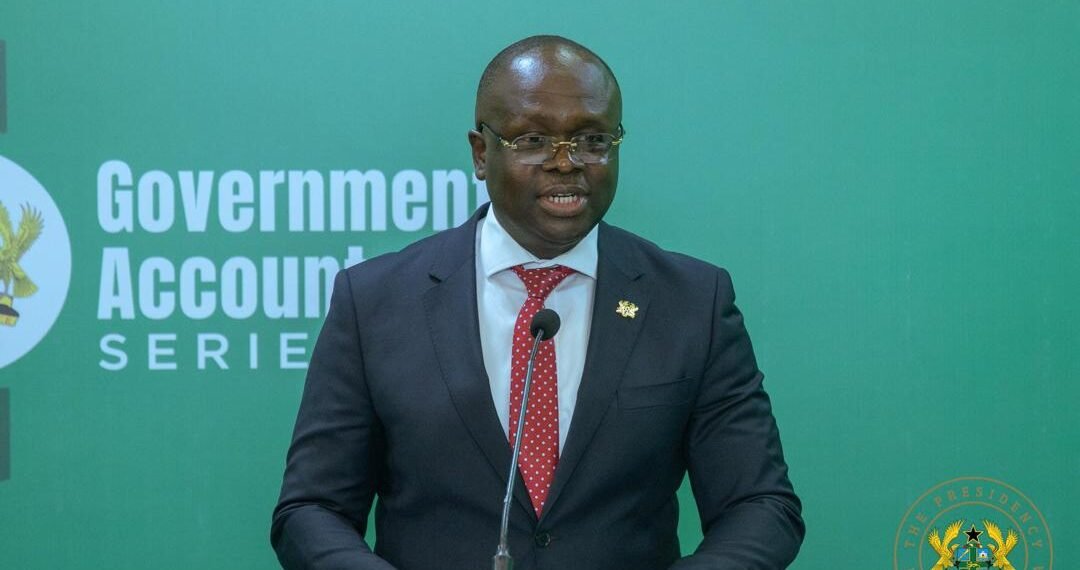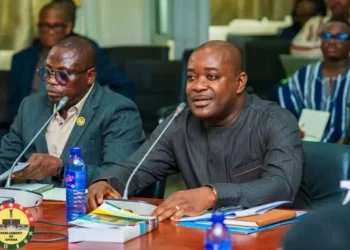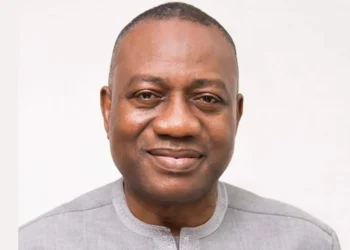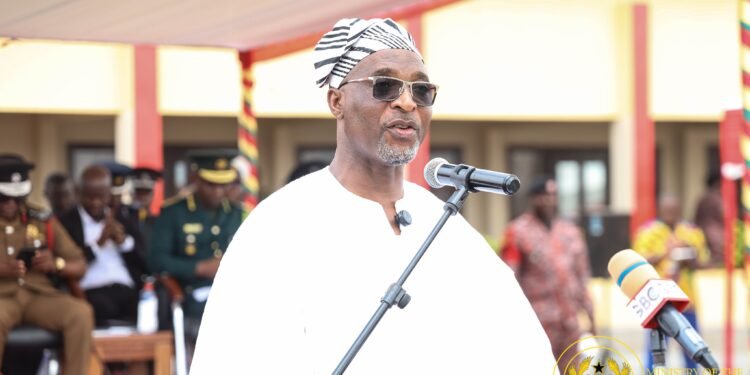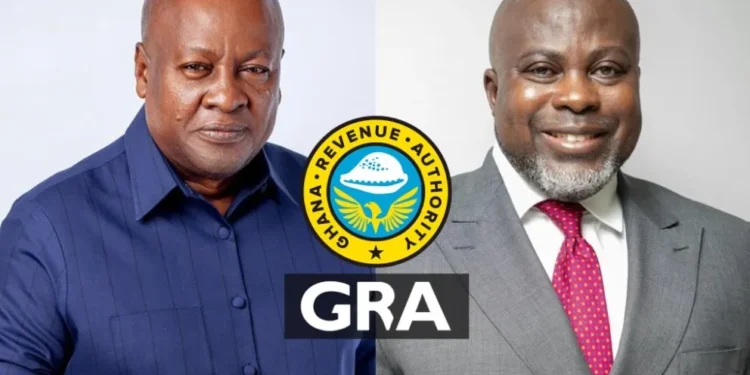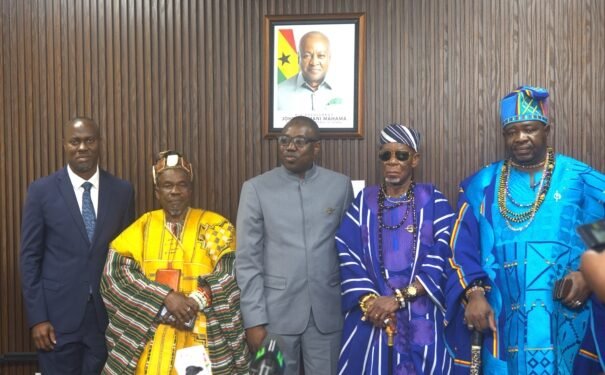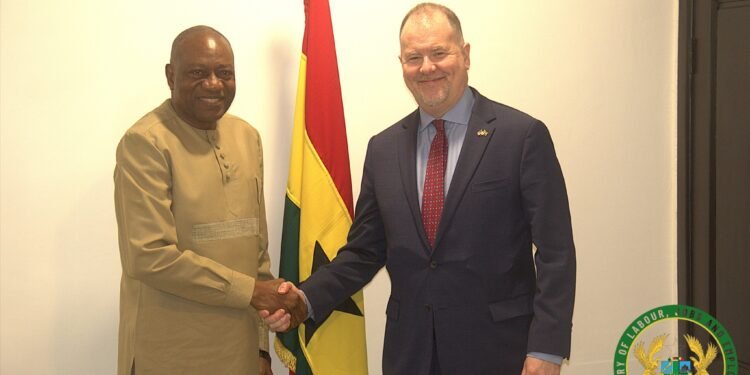The Minister for Defence, Dr Edward Omane Boamah, has announced a significant expansion of the Ghana Armed Forces’ involvement in national development, revealing that the Defence Industries Holding Company (DIHOC) will spearhead the construction of the much-anticipated six-lane Accra-Kumasi Expressway.
Speaking at the Government Accountability Series held at the Jubilee House, Dr Omane Boamah positioned DIHOC as a central pillar in Ghana’s pursuit of industrial transformation, food sovereignty, and infrastructure development under the Reset Ghana Agenda.
According to the Minister, DIHOC, originally envisioned by the late President John Evans Atta Mills and later revitalized under President John Dramani Mahama, has now evolved into a more dynamic institution with an expanded national mandate.
“I tend to the Defence Industries Holding Company (DIHOC) Limited as key drivers of industrial and economic transformation,” Dr Boamah stated, adding that DIHOC is no longer a dormant entity but an engine of progress in Ghana’s developmental agenda.
“I have inaugurated a new innovative, enterprising and action-oriented governing board chaired by my capable deputy, Mr Ernest Brogya Gyenfi. I have tasked them to transform plenty talks into action and verifiable outcomes in order to place the Ghana Armed Forces on the path of sustainable financing”.
Minister for Defence, Dr Edward Omane Boamah
As part of this transformative agenda, DIHOC has been entrusted with leading the implementation of President Mahama’s proposed six-lane Accra-Kumasi Expressway.
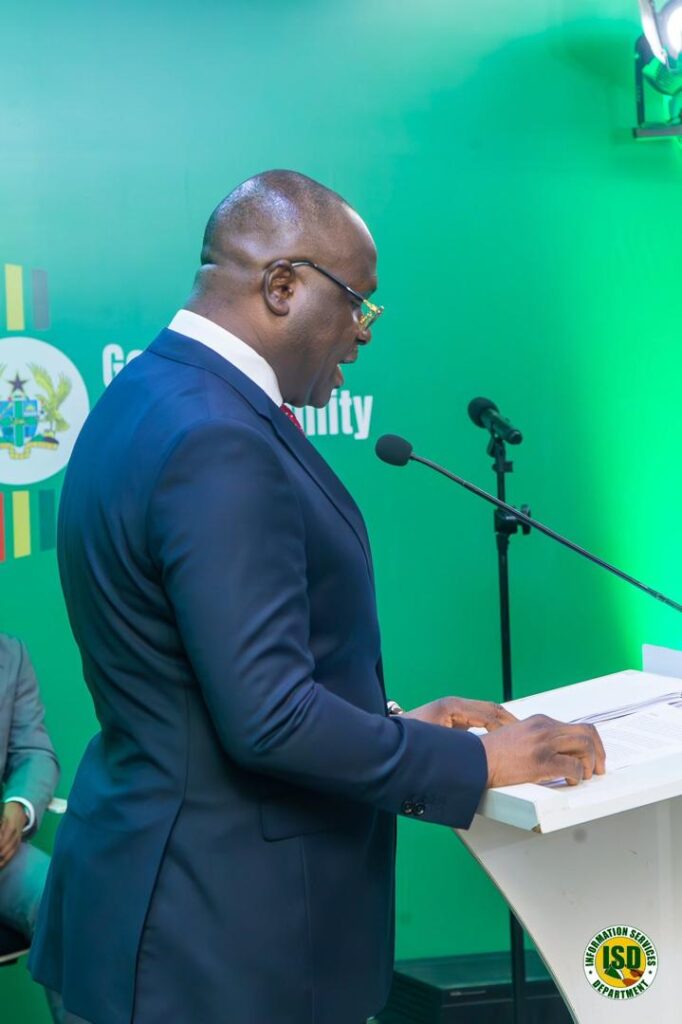
The expressway, a strategic national infrastructure project, is expected to enhance connectivity between Ghana’s capital and the Ashanti Region, a vital economic zone.
Dr Boamah was confident in the Armed Forces’ ability to deliver on this task, asserting, “Who else can Ghanaians trust to execute road construction day and night within a twenty-four-hour economy, if not the Ghana Armed Forces?”
He further revealed that the Ghana Armed Forces are already demonstrating their engineering capability through an ongoing partnership with the Ghana Bauxite Company.
Together, they are preparing to begin construction on a 180-kilometer road along the Awaso-Takoradi Corridor, a route critical for the transport of Ghana’s bauxite to the Takoradi Port.
“The 180-kilometer stretch is deteriorating due to bauxite haulage. When work commences, this road works will once again demonstrate the military’s engineering expertise and long-standing commitment to supporting national development. Details of the collaboration and a groundbreaking ceremony are expected in the coming weeks.
Minister for Defence, Dr Edward Omane Boamah
DIHOC’s Food Sovereignty Drive
In addition to infrastructure, DIHOC is also being positioned at the forefront of Ghana’s food sovereignty agenda. The Defence Minister said efforts were well underway to roll out large-scale commercial agriculture operations.
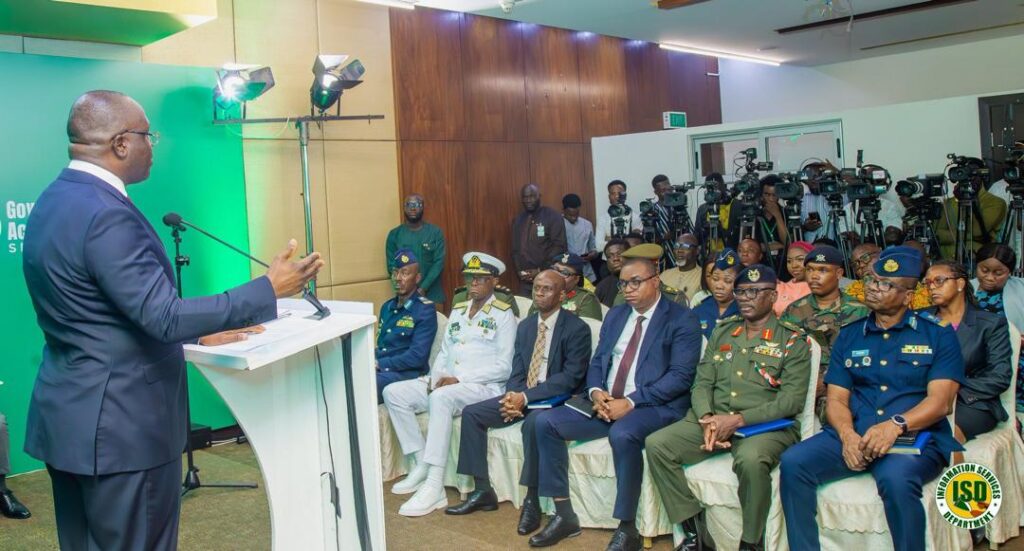
These include strategic partnerships with the Ministry of Food and Agriculture, the Office of the President for Special Initiatives, the 24-Hour Economy Secretariat, the National Service Authority, and select private sector actors.
The agricultural drive, he explained, would ensure a sustainable food supply for military personnel and contribute more broadly to national food security.
Projects under this initiative will include mechanized farming of staples such as maize, soya, and rice, along with a revitalized focus on poultry production.
Dr Boamah revealed that during his recent visit to the Army Recruit Training School and various military garrisons, he observed encouraging levels of preparation among units ready to engage in these farming activities.
“My visit to the Army Recruit Training School and within the garrisons revealed some units preparing in earnest to take up the Nkoko Nketenkete initiative,” he said, referencing a grassroots poultry initiative aimed at boosting protein availability and rural incomes.
Dr Boamah described DIHOC’s mandate as foundational to Ghana’s aspiration for a resilient, industrialized economy. He drew parallels with Egypt’s success in North Africa and stressed that Ghana can achieve a similar feat in West Africa with the right leadership and commitment.
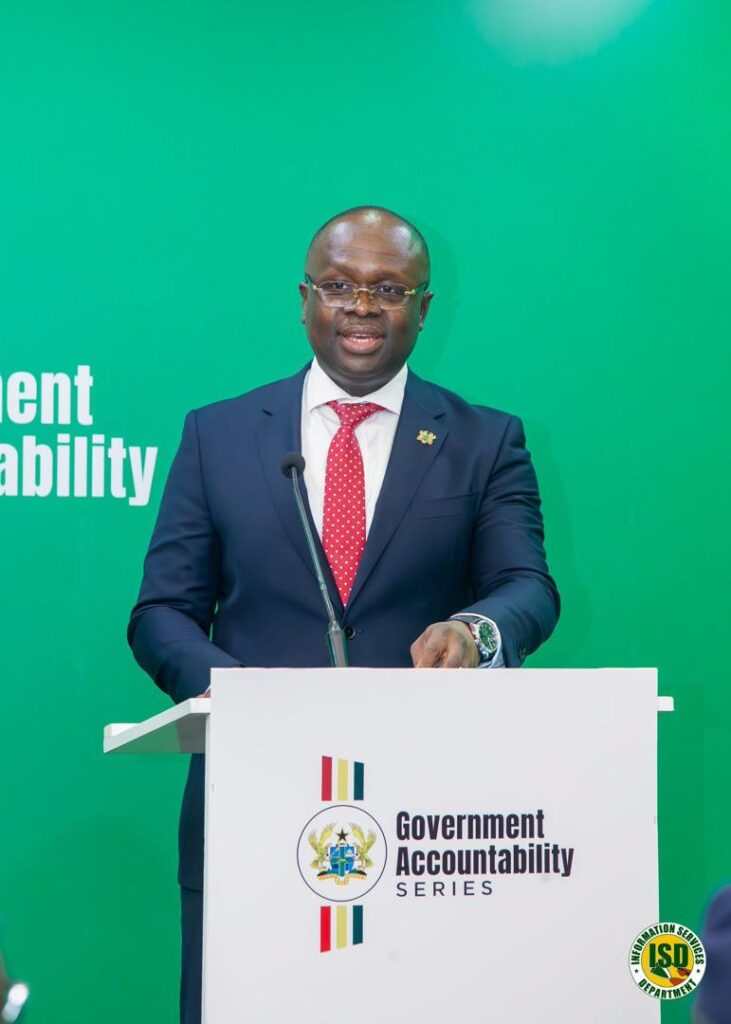
“DIHOC is laying the foundation for a resilient, industrialized Ghana that can feed itself, empower its people, and thrive in a competitive global landscape”.
Minister for Defence, Dr Edward Omane Boamah
With DIHOC poised to lead both the construction of a vital national expressway and drive agricultural self-sufficiency, the Ghana Armed Forces appear to be entering a new era of civil-military collaboration in development.
The Defence Minister’s message was clear: Ghana’s military is not only a guardian of national security, but also a builder of national progress.
READ ALSO: Kenyan Activist Charged Over Possession Of Ammunition

